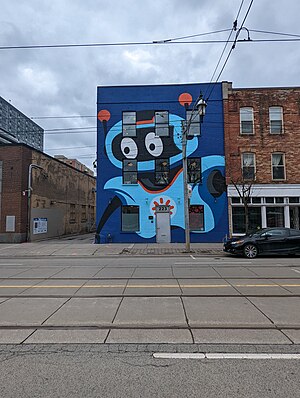Tineye
Jump to navigation
Jump to search

Tineye is a software firm that rolled out a reverse image search engine.[1][2] Unlike a conventional text-based search engine, where the user requests a search for web-pages with a particular string of text, tineye users supply the search engine with an image, and it returns web-pages with a version of that image.
Tineye doesn't just provide web-pages with exact matches of the image in question.[1][2] It can recognize images that are cropped, images that are of different resolution, images that have been altered.
Tineye's own web-page went live in 2008, three years before google added a reverse image search feature to its own search engine.[3][4]
References
- ↑ 1.0 1.1 Amber McArthur. Wired Women of Canada: Leila Boujnane, search innovator, Globe and Mail, 2022-05-16. Retrieved on 2022-05-23. “After moving from France to Canada, Boujnane started working for a software company 'by accident.' She fell in love with the ability to build great teams and use technology to solve complex problems. She describes the industry as the most exciting on earth, 'unless you become an astronaut.'” mirror
- ↑ 2.0 2.1 William Mougayar. Stroll on the East side of Toronto, with TinEye, Hailo and Vanhawks, Startup management, 2014-08-26. Retrieved on 2022-05-23. mirror
- ↑ Dave Zarum. Google launches “new” reverse-image search engine—three years after a Toronto tech company did it first, Toronto Life, 2011-06-17. Retrieved on 2022-05-23. “Three years ago, Leila Boujnane’s Idée Inc. developed an oh-so-cool reverse-image search engine called TinEye.”
- ↑ Matt Hartley. Google muscles in on Canadian startup, Financial Post, 2011-06-14. Retrieved on 2022-05-23. “As the creator of TinEye — a reverse-image search technology that allows users to figure out where a photo came from, how it is used and whether modified versions of it exist anywhere on the Web — she had a feeling Google would one day add similar functionalities to its flagship search engine.”
